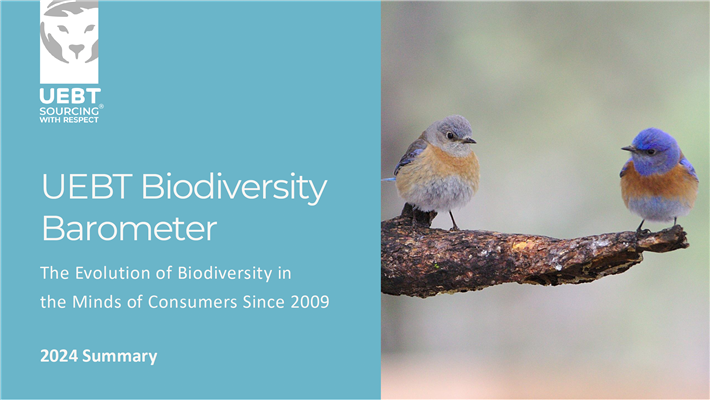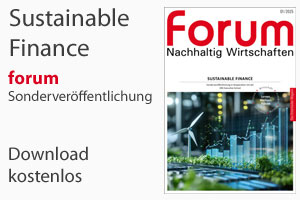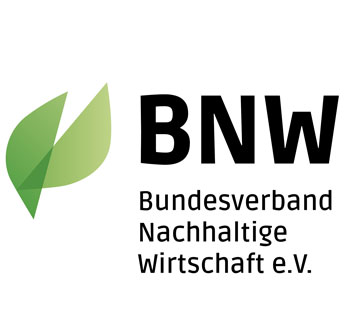New report shows biodiversity awareness soars as consumer demand for transparency and action is hitting new heights
Highest awareness ever of biodiversity among consumers and on the rise in all countries surveyed
- High expectations for companies to protect biodiversity and people
- Company inaction remains a huge block: consumers are not convinced companies are doing enough to protect biodiversity
- Consumers expect companies to communicate on a product’s impact on biodiversity, second only to communicating about ingredients or materials inside a product
- Consumers are increasingly concerned about the biodiversity crisis, second only to the climate crisis in their minds
Consumers mark their highest awareness ever of the planet’s biodiversity and expect companies to do more to protect it, says new report launched actually.
The vast majority of 6,000 consumers surveyed in the report, called the "Biodiversity Barometer” commissioned by the international non-profit Union for Ethical BioTrade (UEBT) asking consumers their level of concern about biodiversity loss and what they expect from companies, agree that ‘companies have a moral obligation to ensure that they have a positive impact on people and biodiversity.’ 86% of consumers surveyed said they think companies have a moral obligation to assure they have a positive impact on biodiversity. However, they remain less assured that companies are genuinely focusing on biodiversity-friendly sourcing practices. Only 54% said they feel that companies pay serious attention to protecting biodiversity.
These sentiments become clear in the report’s findings that biodiversity has gained its highest importance in the minds of consumers since this research began in 2009. At that time, the research was focused on whether people knew what biodiversity means and could define the word. Biodiversity is now very well understood, and biodiversity loss is recognized by the public as an urgent global issue, ranking as the second most urgent global environmental concern following climate change. Today and rising since the last edition of this same research in 2022, consumer awareness of biodiversity sits at 9 out of 10 consumers understanding what it means with scores progressing in France, UK, and in the US, and remaining stable in Brazil and China, where it was already very high. Consumers can identify the correct definition of ‘biodiversity’ with great certainty, and across all age groups and income levels.
This year’s edition of the research focused on two aspects of the Kunming-Montreal Global Biodiversity Framework (KMGBF). When consumers surveyed were given basic information on it and its goals, 83% said they would like companies to contribute to this global agreement for biodiversity. And 82% of consumers said they would like companies to inform them about the concrete actions they as consumers can take to reduce consumption or waste, and to make more sustainable choices. This latter point is a key part of Target 16 of the KMGBF which states that we must ‘ensure that people are encouraged and enabled to make sustainable consumption choices.’
This year’s edition also showed that consumers firmly believe that individuals have a direct relationship with biodiversity impacting not only their own well-being but also that of future generations. Consequently, they see it as their obligation to protect and regenerate nature and biodiversity. 90% of those surveyed stated that they feel it is the obligation of humans to protect nature, and 89% said it is a human obligation to also regenerate it.
Consumers are increasingly less assured that companies are genuinely committed to protecting biodiversity. Across the different countries a mixed picture of consumer confidence shows when it comes to businesses protecting biodiversity: While some countries show small rises in consumer confidence, overall the level of trust in companies is very low. Fewer than one out of four consumers surveyed were able to completely agree that companies pay serious attention to biodiversity.
However, consumers are increasingly convinced that their own purchases of biodiversity-conscious products and brands can have a positive impact on people and biodiversity. 82% agreed that they can have a positive impact on society by buying products from companies that respect biodiversity and people. Consumers also want to be informed, either through the packaging or product website on the impact the product has on biodiversity. Impact on biodiversity is the second most important information consumers expect on a product, behind the list of ingredients and before the origin of the ingredients.
Finally, while overall awareness has reached its highest level to date, awareness of biodiversity is higher among men, consumers aged 25-44 and those with higher incomes. However, the level of awareness is rising quickly among women and those from 25-34 years old.
"For several years at UEBT we have been tracking rising awareness of biodiversity, but today we see something new: awareness has soared, and with this, expectations have hit new heights. However, we also see that the lack of action and transparency from companies must be unlocked. Consumers feel strongly and personally connected to biodiversity, and they wish to see it protected and built back up. They expect companies to take clear steps to do this, but as of now they do not see proof of this,” said Rik Kutsch Lojenga, Executive Director of UEBT.
"We are pleased to see the highest level of awareness ever of biodiversity among consumers, with people all over the world increasingly able to identify what it means and feeling strongly our human obligation to care for it. We are also glad to see that when consumers are given information about the Global Biodiversity Framework and its whole of society approach, they state that they would like to see the private sector contribute to its implementation. Furthermore, consumers want to make sustainable choices, to reduce consumption or waste, but they expect the private sector to help them in this regard. This shows there is a clear opportunity for biodiversity-conscious businesses to take action that can not only contribute to biodiversity conservation and sustainable use of biodiversity but can also support them to have thriving and resilient businesses,” said Astrid Schomaker, Executive Secretary of the Convention on Biological Diversity (CBD).
About the Biodiversity Barometer Report and its Methodology
UEBT commissions independent market research companies to conduct consumer research for the UEBT Biodiversity Barometer. Interviews are conducted with nationally representative samples of 1,000 persons per country. To correct sampling disparities, a post-stratification weighting of results, based on socio-demographic variables, is applied. For cost reasons, UEBT opts for internet surveys where possible. In some countries face-to-face interviews and phone interviews were used in certain years. Different methods may slightly influence research outcomes. The research in 2024 was conducted by Toluna- Harris Interactive. Between 2009 and 2020 the research was conducted by IPSOS on behalf of UEBT.
UEBT is independent, impartial and objective in its dealings with governments, political parties, other organisations and individuals.
To access the full report and more key takeaways visit: www.biodiversitybarometer.org.
About UEBT
UEBT is an international non-profit organisation that promotes sourcing with respect. Their mission is to regenerate nature and secure a better future for people through ethical sourcing of ingredients from biodiversity. UEBT’s vision is a world in which all people and biodiversity thrive. The organisation sets good practices for how companies and their suppliers source biodiversity-based ingredients for the food & beverage, beauty and natural pharmaceutical sectors. UEBT is internationally recognised for its work advancing business contributions in support of the Convention on Biological Diversity and the Sustainable Development Goals.
More information at: www.uebt.org.
The Convention on Biological Diversity (CBD)
Opened for signature at the Earth Summit in Rio de Janeiro in 1992, and entering into force in December 1993, the Convention on Biological Diversity is an international treaty for the conservation of biodiversity, the sustainable use of the components of biodiversity and the equitable sharing of the benefits derived from the use of genetic resources. With 196 Parties so far, the Convention has near universal participation among countries. The Convention seeks to address all threats to biodiversity and ecosystem services, including threats from climate change, through scientific assessments, the development of tools, incentives and processes, the transfer of technologies and good practices and the full and active involvement of relevant stakeholders including indigenous and local communities, youth, NGOs, women and the business community. The Cartagena Protocol on Biosafety and the Nagoya Protocol on Access and Benefit Sharing are supplementary agreements to the Convention. The Cartagena Protocol, which entered into force on 11 September 2003, seeks to protect biological diversity from the potential risks posed by living modified organisms resulting from modern biotechnology. To date, 173 Parties have ratified the Cartagena Protocol. The Nagoya Protocol aims at sharing the benefits arising from the utilization of genetic resources in a fair and equitable way, including by appropriate access to genetic resources and by appropriate transfer of relevant technologies. It entered into force on 12 October 2014 and to date has been ratified by 142 Parties.
For more information visit: www.cbd.int.
Kontakt: Union for Ethical BioTrade, Lara Koritzke | pr@uebt.org | www.uebt.org
Umwelt | Biodiversität, 25.10.2024
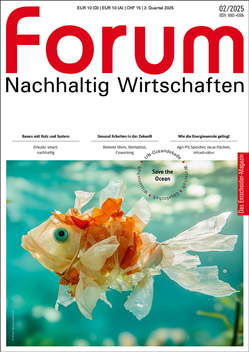
Save the Ocean
forum 02/2025 ist erschienen
- Regenerativ
- Coworkation
- Klimadiesel
- Kreislaufwirtschaft
Kaufen...
Abonnieren...
30
APR
2025
APR
2025
Franz Alt: Die Solare Weltrevolution - Aufbruch in eine neue Menschheitsepoche
In der Reihe "Mein Klima… in München"
80331 München und online
In der Reihe "Mein Klima… in München"
80331 München und online
07
MAI
2025
MAI
2025
MakerCamp Genossenschaften 2025
Genossenschaftliche Lösungen in Wirtschaft, Kommunen und Gesellschaft
65189 Wiesbaden
Genossenschaftliche Lösungen in Wirtschaft, Kommunen und Gesellschaft
65189 Wiesbaden
14
MAI
2025
MAI
2025
Klimaschutz im peruanischen Regenwald
Delegierte der Asháninka teilen ihre Perspektiven
80802 München, Seidlvilla
Delegierte der Asháninka teilen ihre Perspektiven
80802 München, Seidlvilla
29
JUN
2025
JUN
2025
Constellations Week 2025 in Südtirol
Inspiration, Klarheit und Empowerment
I-39010 Tisens-Prissian, Südtirol
Inspiration, Klarheit und Empowerment
I-39010 Tisens-Prissian, Südtirol
Professionelle Klimabilanz, einfach selbst gemacht

Einfache Klimabilanzierung und glaubhafte Nachhaltigkeitskommunikation gemäß GHG-Protocol
Politik
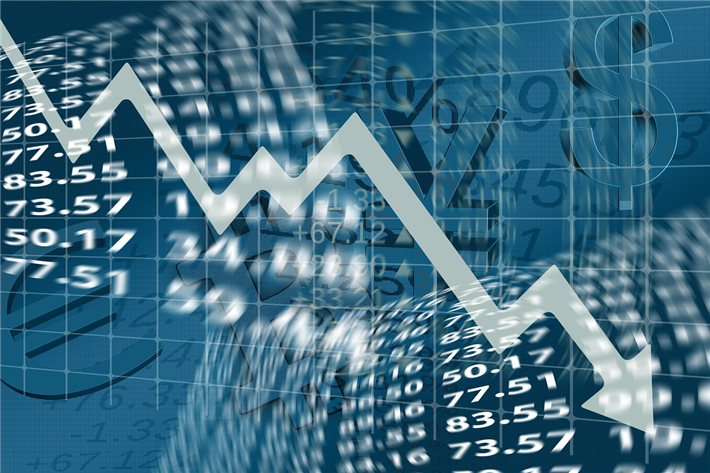 Sind wir alle viel zu geldfixiert geworden?
Sind wir alle viel zu geldfixiert geworden?Mit Blick auf auf das Börsenchaos überlegt Christoph Quarch, was ein gutes Leben ausmacht
